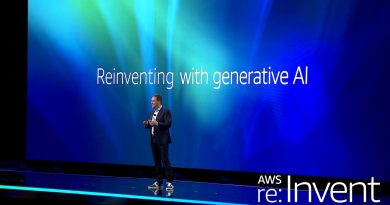How to migration from windows server 2008 R2 to windows Server 2019
Server 2019
1. Prepare
– GAS-DC-002 : Domain Controller(adam.local) running Windows Server 2008 R2
| GAS-DC-004 : Workgroup running Windows Server 2019
2. Step by step : Active Directory Migration from Windows Server 2008 R2 to Windows Server 2019
– GAS-DC-001 : Raise forest functional level and SYSVOL migration from FRS to DFSR
+ Start – Administrative Tools – Active Directory Domains and Trusts – Right-Click ‘Active Directory Domains and Trusts [GAS-DC-001.adam.local]’
– Raise Forest Functional Level… – Select an available forest functional level: Choose ‘Windows Server 2008 R2’ – Raise – OK
+ Right-Click adam.local – Raise Domain Functional Level… – Check current domain functional level : Windows Server 2008 R2 – OK
+ Start – cmd, type :
+ dcdiag /e /test:sysvolcheck /test:advertising # Test that sysvol is shared and advertising
+ dfsrmig /getglobalstate # Verify the system uses the FRS or DFRS
+ dfsrmig /setglobalstate 1 # Waiting between 15 min to 1 hour
+ dfsrmig /getmigrationstate # Verify that all domain controllers have migrated successfully to the worldwide state
+ dfsrmig /setglobalstate 2 # Waiting between 15 min to 1 hour
+ dfsrmig /getmigrationstate # Verify that all domain controllers have migrated successfully to the worldwide state
+ dfsrmig /setglobalstate 3 # Waiting between 15 min to 1 hour
+ dfsrmig /getmigrationstate # Verify that all domain controllers have migrated successfully to the worldwide state
+ net share # Verify the SYSVOL share and type net share
+ Start – services.msc – check ‘File Replication Service’ Disabled and Stopped — OK
+ Start – cmd, type : netdom query fsmo # check server has installed FSMO roles — Restart server
– GAS-DC-004 : Install an Additional Domain Controller and transfer FSMO from GAS-DC-001
+ Join to adam.local – Restart server
+ Server Manager – Manage – Add Roles and Features – Next to Server Roles – Select ‘Active Directory Domain Services’ + DNS – Add Features
– Next and Install – Close
+ Click Notifications – Click “Promote this server to a domain controller” – Select “Add a domain controller to an existing domain”
– Type the Directory Services Restore Mode (DSRM) password : Enter Password and Confirm password – Next to Install – Restart
+ Logon use account ADAMadministrator – Start – cmd – Type : nltest /dclist:adam.local === Check Domain Controllers
+ Tranfer RID Master, PDC Emulator, and Infrastructure Masters :
+ Server Manager – Tools – Active Directory Users and Computers – Right-Click adam.local – Operations Masters… :
+ Tag RID : click Change… – Yes + Tag PDC : click Change… – Yes + Tag Infrastructure : click Change… – Yes
+ Transfer Domain Naming Master :
+ Server Manager – Tools – Active Directory Domains and Trusts
– Right-Click ‘Active Directory Domains and Trusts[GAS-DC-004.adam.local]’ – Operations Masters… – Click Change… – Yes
+ Transfer Schema Master
+ Start – cmd, type : ‘regsvr32 schmmgmt.dll’ – mmc – File – add/Remove Snap-in… – Select ‘Active Directory schema’ – add – ok
– Right-Click ‘Active Directory schema[GAS-DC-001.adam.local]’ – change Active Directory Domain Controller… – Change to : Select GAS-DC-004 – ok
– Right-Click ‘Active Directory schema[GAS-DC-004.adam.local]’
– Operation Masters… – Click Change – Yes – Close
+ Start – cmd, type : netdom query fsmo
# show server holding FSMO Roles is GAS-DC-004- OK
– GAS-DC-001 : Demote Domain Controller
+ Start – dcpromo – Next to Administrator Password : Enter password and confirm – Finish – Restart Now
+ Server Manager – Roles – Remove Roles – Server Roles : Uncheck ‘Active Directory Domain Services’ + DNS – Remove – Close – Restart
– : Check Domain Controllers again
+ Active Directory Users and Computers – adam.local- Domain Controllers Contain === Only GAS-DC-004 === OK
windows server



